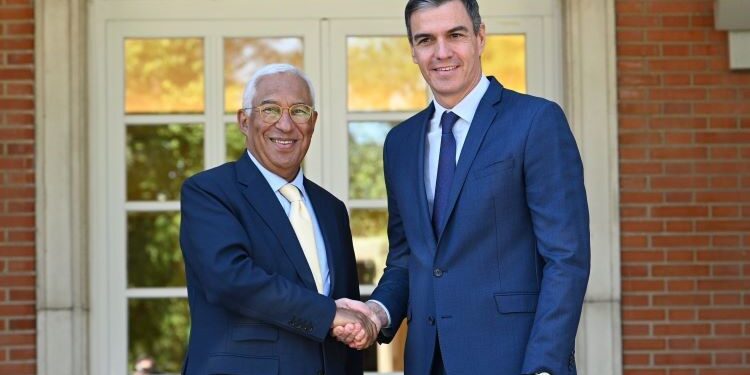Eduardo González
The President of the Government, Pedro Sánchez, received yesterday at the La Moncloa Complex the president-elect of the European Council, António Costa, with whom he spoke about the challenges and priorities of the EU for the next five years.
As reported by Moncloa in a press release, the president congratulated Costa on his appointment and highlighted his “conciliatory and consensus-building profile” to politically promote the most strategic and prospective issues that affect the EU.
Likewise, Sánchez highlighted the need to improve the competitiveness of the Union to achieve more and better jobs and also to guarantee the financing of European public goods, essential to fight climate change and guarantee peace in Europe.
During the meeting, Sánchez and Costa also addressed other major debates regarding the new European legislative cycle, such as the enlargement and reform process, the new Multiannual Financial Framework, the geopolitical context and the EU’s relations with Latin America and the Caribbean and Africa.
On June 25, the main European political groups reached an agreement to distribute the presidencies of the main institutions of the European Union: Ursula von der Leyen, head of the European Commission; António Costa, in the presidency of the European Council; and Kaja Kallas, to succeed Josep Borrell as High Representative for Foreign Affairs.
The agreement between popular, socialists and liberals was ratified two days later by the first European Council of the legislature, with the votes against the Prime Minister of Italy, Giorgia Meloni (who spoke out against Costa and Kallas), and of the Prime Minister of Hungary, Viktor Orbán (who voted in favor of the former Portuguese Prime Minister, but did so against Von der Leyen).
Unlike Von der Leyen and Kallas, who will still have to pass the filter of the European Parliament, António Costa will take office on December 1, replacing the current president, the Belgian Charles Michel. It is still unknown what will happen to the second half of the term of the Council presidency, since the EPP asked the socialists to divide the term. Therefore, the question is whether Costa will serve the full five years of his term or whether he will serve two and a half years before handing over the rest of the term to an EPP member.
Pedro Sánchez always maintained a special harmony with António Costa during his time as Prime Minister of Portugal, especially in Europe and, above all, in the energy field. Its main exponent was the so-called Iberian Mechanism, with which Spain and Portugal were governed since June 2022 and which was possible after the European Council approved the right of the two Iberian countries to manage their own gas reference prices for the combined cycle plants, in response to the character of the peninsula as an “energy island” due to its very low interconnection with the European energy market.
During the XXXIV Spanish-Portuguese Summit, which was held in Lanzarote in March 2023, Pedro Sánchez and António Costa showed their “harmony” regarding the priorities of the imminent Spanish Presidency of the Council of the European Union, such as the Migration Pact and Asylum, new fiscal rules, the defense of a regulatory framework for the electricity market, “open strategic autonomy” and the strengthening of relations between the EU and “the Global South”.
António Costa was forced to resign as Prime Minister of Portugal in November 2023 after the Portuguese Prosecutor’s Office opened criminal proceedings against him and some members of his Government for alleged corruption, prevarication and influence peddling linked to the lithium sector. and green hydrogen.
The position of President of the Council, created in 2009 and for which only current or recently replaced presidents or prime ministers are eligible, has to date been in the hands of two members of the European People’s Party (EPP) – the Belgian Herman van Rompuy and the Polish Donald Tusk– and a liberal -the also Belgian Charles Michel-. Therefore, Costa is the first socialist to assume this responsibility.







